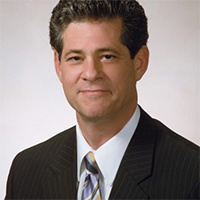 Richmond RICO Act Lawyers, Virginia
Richmond RICO Act Lawyers, Virginia
Sponsored Law Firm
-
 x
x

Click For More Info:
-
Price Benowitz LLP
409 7Th St Nw Suite 200 Washington, DC 20004» view mapCriminal Law Working Relentlessly For You
Our firm was built on the understanding that comprehensive representation does not begin and end in the courtroom.
202-600-9400
Not enough matches for Richmond RICO Act lawyer.
Below are all Richmond Criminal lawyers.
Sponsored Lawyers
1-10 of 59 matches
Criminal, Divorce & Family Law, Traffic
Daniel J. Bounds founded Bounds and Bounds, PLLC in 2022 and serves as the Managing Partner of the Firm. Before practicing law, Daniel accumulated his experience through various leadership roles in both the private and public sectors. Graduating from Virginia Tech with a bachelor’s degree in History, Daniel commissioned as an Officer in the United States Marine Corps. Daniel was promoted to Captain in 2017 and served from 2012 to 2020 in various active and reserve duty roles as a combat engineer officer. Daniel’s time in the reserves allowed him to gain valuable business experience through holding leadership roles in the private sector: from operations manager at LKQ Corporation, a Fortune 500 company; to running the NATO conference center at Alion Science and Technology. Daniel earned his law degree from Louisiana State University’s Paul M. Hebert Law Center while also attending George Mason University’s Law School for his final three semesters. During law school, Daniel held various legal positions, serving as a clerk to Judge Jeffrey Parker in Virginia’s 20th Judicial Circuit and working with the private firm of Turbitt, Leach, & Crum in Fairfax, Virginia. After law school, Daniel gained valuable trial experience as an Associate Attorney with Howard, Clark & Howard in Warrenton, Virginia. At Howard, Clark & Howard, Daniel primarily worked as a trial attorney, serving clients in civil, domestic, and criminal matters. While gaining trial experience, Daniel simultaneously grew his business law practice, serving a wide range of businesses, including those focusing on Virginia’s cannabis market. Today, Daniel’s diverse practice is enhanced by his past business experience, trial experience, and his time in numerous military and civilian leadership positions. Daniel also serves as General Counsel for AgriTech LLC, a tech company focusing on merging technology and agriculture to ensure a sustainable future.
(more)Criminal, Traffic, DUI-DWI
If you have to go to court, put experience on your side with Joe McGrath Attorney at Law. Virginia Traffic Court & DUI Attorney. Joe McGrath has been defending the residents of Richmond, Petersburg, and several surrounding counties, since 1980 and is a member of many groups such as the National Association of Criminal Defense Attorneys, The Virginia Association of Criminal Defense Attorneys, and most importantly, the National College for D.U.I. Defense. With his many years of experience, Joe McGrath understands that for someone who is stepping into court it can put you at a disadvantage without someone who knows the system well. For someone whose job, family, and life depend on a license, it can be scary to fight alone. Joe McGrath Attorney at Law concentrates his practice on all traffic criminal defenses, DUI & DWI charges, license reinstatement, personal injury, and other legal services.
(more)Family Law, Divorce, Mediation, Criminal, Employment
Carol A. N. Breit, Attorney at Law, in Richmond, Virginia, is dedicated to offering clients personalized attention, carefully evaluating each case to find the best possible solution. With years of experience, she provides effective representation in family law, criminal defense, personal injury, and employment law matters. Carol is skilled in both negotiation and litigation, using her expertise to resolve disputes efficiently while being ready to fight for her clients in court when necessary. In family law, Carol guides clients through issues such as divorce, custody, visitation, child support, and spousal support. As a criminal defense attorney, she defends clients against felony and misdemeanor charges, including DUIs and drug offenses. Carol also represents individuals in personal injury cases, helping them recover compensation for injuries, medical expenses, and lost wages, as well as wrongful death actions. Having started her career as a prosecutor, Carol brings invaluable insight into the litigation process. This experience allows her to protect clients’ rights while offering strong, strategic advocacy in all legal matters. Contact Carol today to schedule a consultation and discuss how she can assist you with your case.
(more)Criminal, Car Accident, Personal Injury, Wrongful Death, Employment
Mr. Montgomery has over 15 years of trial litigation experience in criminal law, personal injury law (car accidents and medical malpractice) and employment law. Mr. Montgomery is a lifetime member of the Million Dollar Advocates Forum as he has obtained million dollar verdicts for several clients.
(more)Criminal, DUI-DWI, Traffic, Divorce & Family Law
Jason Moore is a life long resident of Central Virginia. He graduated from Uva where he majored in History, and worked at the school paper. He took a year off between undergraduate and law school to work as a legislative assistant at the Virginia General Assembly. He then attended T.C. Williams School of Law at the University of Richmond. As part of his studies at Richmond, he did a semester aboard studying at Emmanuel College at Cambridge University in Great Britain. For the last twenty-one years, Jason has practiced criminal law from the Carolina line to north of Richmond and from New Kent to Nelson. He has worked on almost every type of criminal case imaginable from traffic tickets, reckless driving, DUI or driving revoked to larceny, embezzlement, breaking and entering to various violent sex offenses, to murder. He has tried 30 jury trials including two murder jury trials. Jason is admitted to practice in all Virginia courts and has argued cases before the Virginia Supreme Court and Virginia Court of Appeals. He is also admitted the the US District Court, the 4th Circuit Court of Appeals, the Bankruptcy bar and has conducted hearing before Social Security Administration Judges. The results of some of Jason’s cases have been mentioned in Virginia Lawyer’s Weekly, and he has been interviewed by all three local TV stations, the Richmond Times Dispatch and WRVA regarding various cases he has tried.
(more)Accident & Injury, Criminal, Wrongful Death, Motor Vehicle, Traffic
STEPHEN V. SOMMERS (licensed in Virginia 1999, Texas (1997), Maryland (1996)), was born at Camp Pendleton, CA, October 4, 1956 and educated at Troy State University (B.S., Summa Cum Laude, 1981), Golden Gate University (M.A., 1986) and American University (Juris Doctor, 1995). Mr. Sommers retired from the United States Air Force at the rank of Major after 22 years flying fighter aircraft. Mr. Sommers has been admitted to practice before the United States District Courts for the Fourth Circuit and the Tenth Circuit and all Virginia Courts. He is a member of the American Trial Lawyers Association, the Virginia Trial Lawyers Association, Virginia Criminal Defense Lawyers Association, Aviation Section of the Texas Bar Association, the American Bar Association, and the Lawyer-Pilot Bar Association, as well as each state’s Bar Association he is licensed in. Mr. Sommers has extensive experience in all types of trial litigation and specializes in personal injury, criminal defense, medical malpractice, product liability, aviation crash litigation, as well as general civil litigation in state and federal courts. A member of The Million Dollar Advocates Forum, the most prestigious group of trial lawyers in the United States. Nominated by the American Institute of Personal Injury Attorneys as 10 Best for 2015 and 2016.
(more)Criminal, Business, Traffic, Power of Attorney, Estate
Glen Henkle is a lifelong Virginian whose family has proudly called this state home for over 200 years. Although born in Richmond, he was raised and attended school in Amelia County and still makes his home there. His upbringing in a rural area taught him the value of hard work, faith, family, community, and that bad things do happen to good people. As a state prosecutor, he was a strong advocate for crime victims, and today he tries to bring that same strength of advocacy to bear for all his clients, both civil and criminal. Glen has successfully prosecuted or defended (or both) most of the common crimes in Virginia, including, but not limited to, abduction, assault, attempted murder, bad check, burglary, conspiracy, credit card offenses, destruction of property, disorderly conduct, domestic assault, DUI, driving suspended, drug possession, drug distribution, forgery/uttering, habitual offender, larceny, malicious wounding, probation violation, reckless driving, robbery, sexual assault, speeding, and underage possession of alcohol. Additionally, as a prosecutor, Glen successfully handled many civil forfeiture cases in which the state sought to have assets, seized as a result of narcotics investigations, forfeited to the government for the use of law enforcement. Having had the experience of building and presenting cases for the government, Glen is well equipped to defend his clients' interests by finding the weaknesses in any opponent's position and exploiting them. He founded this firm in 2012 to share his experience and skills with the public, help them navigate the often complicated and confusing world of laws and courtrooms, and to strive for the best possible outcome for each client, whether in the courtroom or elsewhere.
(more)Divorce & Family Law, Criminal, Motor Vehicle, Lawsuit & Dispute
Lawyer Paul Freeman earned his Bachelor of Science degree at Norfolk State University and his master’s degree at the same university. Following his interest in law and passion for justice, he attained his Juris Doctor at the William & Mary Law School. He has been practicing law for seven years and is currently an attorney at Woodmere Law P.L.L.C. in Williamsburg, VA. Attorney Paul Freeman practices family law and criminal law, including DUI and traffic violations. He has successfully defended clients charged with misdemeanors and felonies. His successes include dismissal of charges, reduction in charges, reduced sentencing and parole rather than prison time. In addition, he assists clients in prayer for judgments and plea bargains with regard to traffic violations. For criminal charges, he works closely with clients and helps them navigate the complex criminal justice process. If the case goes to trial, he prepares for the best outcome and develops an effective criminal defense strategy. In and out of the courtroom, he is a strong legal advocate and a powerful litigator.
(more)


 Seth Price Washington, DC
Seth Price Washington, DC AboutPrice Benowitz LLP
AboutPrice Benowitz LLP Practice AreasExpertise
Practice AreasExpertise








